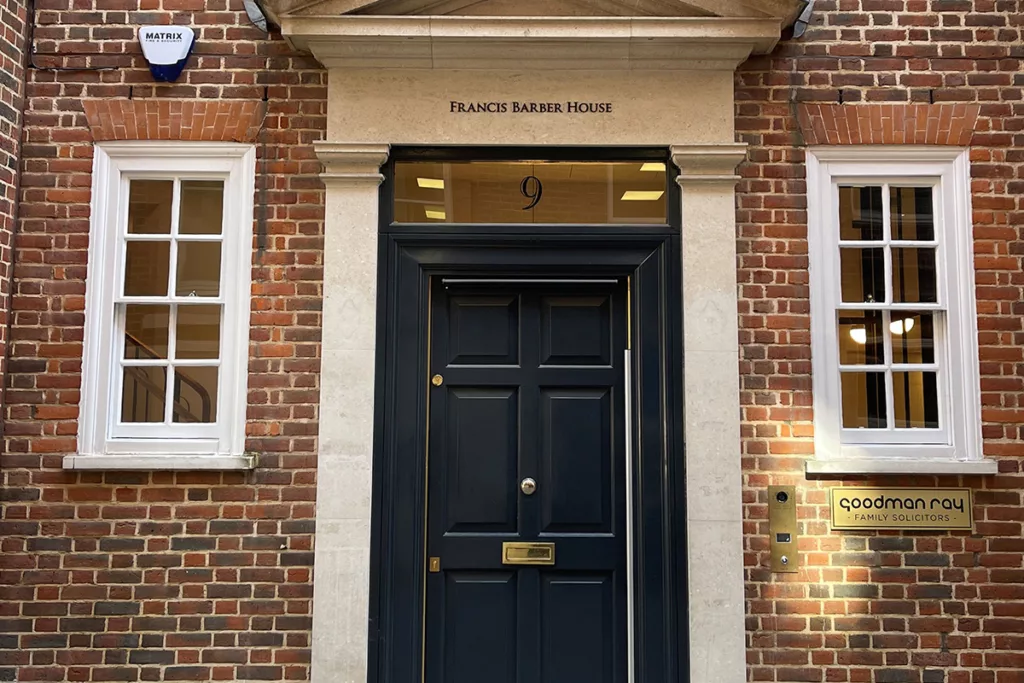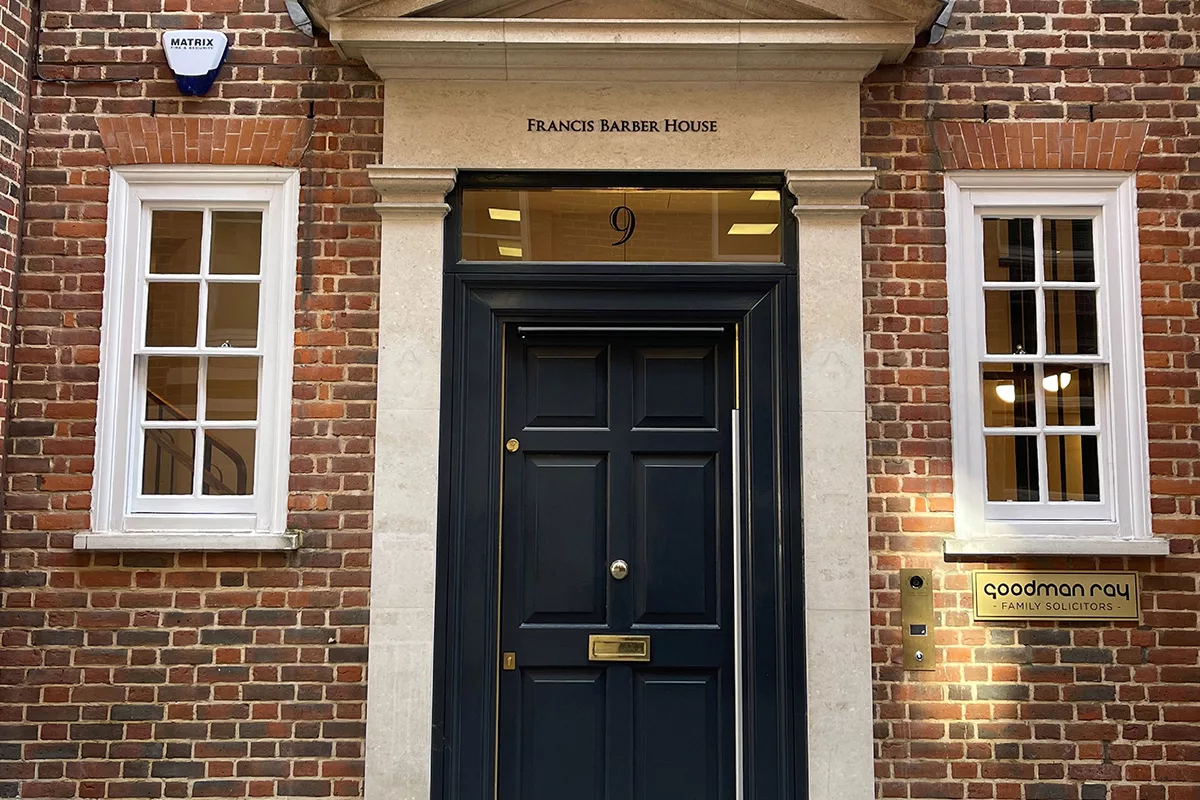
Goodman Ray moved into 9 Gough Square in January 2022. It was then known as Boswell House but after undertaking research we discovered Boswell, although best known for his biography of Samuel Johnson, whose house is opposite us in the Square, was in fact a supporter of the slavery trade in the 18th century. We discovered that a Jamaican slave had joined the Johnson household in Gough Square and obtained permission from the City of London to rename our building Francis Barber House.
Francis Barber was born in Jamaica and came to England in 1750 when he was 7 or 8 years old brought as a slave by his owner, Colonel Bathurst – he was then called Quashey which is a slave name.
Shortly after arrival he was baptised and named Francis Barber and sent to Yorkshire to get an education of sorts.
The issue of slavery and a slave’s right to freedom was the subject of much litigation at the time. Many of these cases were about whether a slave became free on baptism or not (it was argued a Christian could not be a slave) , or whether as soon as a slave set foot in England he became free. The outcomes of this litigation swung back and forth…
After 2 years in Yorkshire, Francis Barber returned to stay with his owner’s son ( a Dr Bathurst) who introduced him to Dr Samuel Johnson, the man of letters who was then at work on his great Dictionary of the English Language. Johnson, who was known for his opposition to slavery, provided a home in Gough Square for a number of impoverished people.
Francis Barber joined the Johnson household here in Gough Square, (aged about 10) working as a servant in the house.
In 1754 (4 years after he came to England his owner (Colonel Bathhurst) made his will – in it he provided for Francis to be granted his freedom and £12 per year. He died the following year and after some years it took effect. This may have been the incentive for Francis to move on and in 1756 he ran away from Dr Johnson and Gough Square. The household then consisted of an array of difficult and argumentative personalities, and it appears there was a dispute which led to Francis running away.
He went to work for an apothecary in Cheapside. In 1758 he joined the British Navy, serving for two years during the Seven Years’ War. At the time, the head of a household was seen as a sort of father figure and at Dr Johnson’s request, his naval service was terminated in no doubt in what he thought was in Francis Barbers interests.
Although Francis himself was not happy about it, he returned to live in Dr Johnson’s household, although no longer in Gough Square. At this time he met James Boswell. Boswells’ views on slavery changed from being an abolitionist to being pro slavery. Johnson on the other hand remained fervently anti slavery and, having Francis Barber in his life, gave focus to his attacks on slavery.
Dr Johnson sent Francis Barber to Bishop Stortford Grammar school where he spent 3 years – Johnson wrote to him often, on one occasion telling him to be a good boy and telling him “you can never be wise unless you love reading”
He went on to advise,
“I would let a boy at first read any English book which happens to engage his attention; because you have done a great deal when you have brought him to have entertainment from a book. He’ll get better books afterwards”
After his time at the school Francis returned to London and to Dr Johnson’s household
In 1773 Francis married. He was then 31 – quite a ladies man apparently – and he married Elizabeth Ball a young white woman aged 17 or 18. The marriage attracted some hostility. Johnson took the couple into his home, where they (and later their children) stayed. The Barbers had 3 surviving children, one having sadly died.
Francis Barber remained with Johnson until Johnson’s death in 1784. He was his nurse and guardian monitoring who came in to see him in his last days. Their relationship had lasted 32 years and Johnson left the residue of his estate to Francis, together with an annuity of £70 per year. It was a controversial legacy but left Francis Barber independent and well off .
As Johnson had wanted, the Barber family moved to Lichfield in Staffordshire (where Johnson had been born). At first they lived in some comfort. Eventually, however, the money ran out and Francis Barber set up a school – he may have been the first black schoolmaster in Britain.
Francis Barber died in 1801 and was buried in St Mary’s Church, Stafford. Elizabeth lived on until 1816. One of their three children, Samuel, married and had children. To this day, the direct descendants of Francis and Elizabeth Barber still live in Staffordshire.
We were honoured recently to have Michael Bundock, Francis Barber’s biographer join us in the celebration of the renaming of our building. The Barber descendants were invited but sadly could not come. We will have them come to see the building named after their extraordinary ancestor in the future.
Author
Peggy Ray
Senior Partner & Co-Founder






